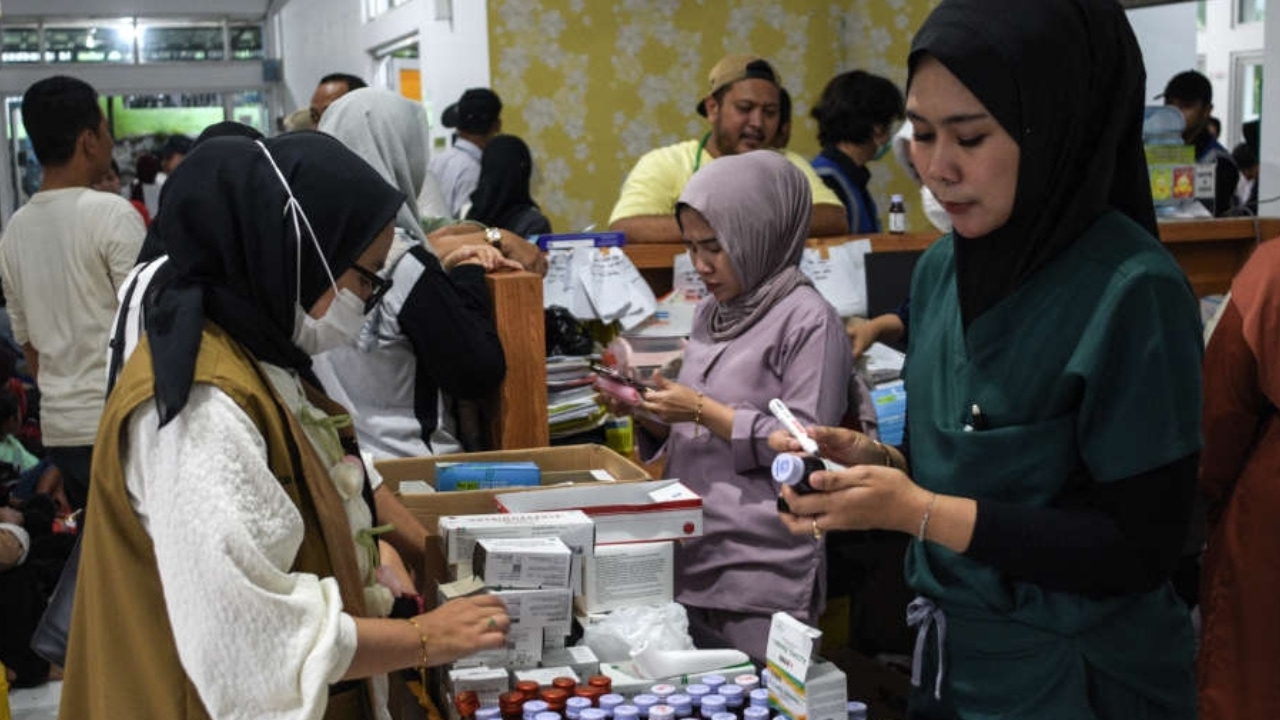
Stay Young and Radiant: 10 Vegetarian Foods That N
Discover the top 10 vegetarian foods to naturally boost collagen and stay young. Learn how plant-bas

Photo:AFP
A shocking outbreak of food poisoning in Indonesia has left more than 1,000 people sick, most of them school children. The incident has alarmed parents, health workers, and education officials across the country. It has also drawn attention to the urgent question of food safety in public programs that are supposed to improve, not harm, people’s lives.
A Promising Program Gone Wrong
The poisoned meals were part of the government’s free lunch distribution in schools, a program designed to fight child hunger and improve nutrition in poorer communities. For many children, these meals are the only proper food they receive in a day. The program was widely praised when it began because it brought relief to families struggling with rising food prices.
But this week’s mass poisoning has shaken public trust. What was meant to nurture children has instead sent them to hospitals, with some battling severe dehydration caused by vomiting and diarrhea. Although no deaths have been reported so far, the scale of the outbreak is unprecedented and deeply worrying.
What Went Wrong?
Preliminary checks by the Indonesian Health Ministry suggest that the food served in schools may have been badly handled or stored, allowing bacteria to grow. This highlights a common but serious problem in large-scale meal programs: the lack of strict hygiene monitoring.
Experts warn that food left out in hot, humid conditions can quickly turn dangerous. In rural areas, where infrastructure is weaker, refrigerators and clean kitchens are not always available. If suppliers or staff cut corners—whether by rushing preparation or failing to follow hygiene guidelines—the risks multiply.
In this case, the failure appears to be systemic. Officials are now testing food samples and questioning suppliers, but the damage is already done.
The Cost to Children and Families
Beyond immediate illness, the outbreak has caused widespread fear among parents. Many are now hesitant to let their children eat school meals, undermining a program that was central to the government’s education and nutrition strategy.
The fear is justified. When more than 1,000 children fall sick at once, it cannot be dismissed as a minor error—it is a failure of oversight. For poor families who depended on school food, the crisis also adds to their struggles: they must either prepare packed meals at home, which many cannot afford, or risk their child’s health at school.
Lessons to Learn
This crisis must be treated as a turning point. Free meal programs are essential in fighting hunger, but they will only succeed if they are safe. Indonesia needs stronger rules and regular monitoring to guarantee food quality. This includes:
Other countries with similar programs, like India’s mid-day meal scheme, have also faced tragic cases of poisoning in the past. The lesson is the same everywhere: good intentions are not enough. Without accountability and safety checks, even the best social program can put lives at risk.
A Matter of Trust
Food safety failures are not only about health—they are about trust. When schools, which are supposed to be safe spaces, become the site of illness, parents lose faith in public institutions. For the Indonesian government, restoring that trust will be essential. Promises of reform are not enough; real action must be seen.
This also raises a larger question: Why are food safety systems in many developing countries still so weak? Economic growth has lifted millions out of poverty, but basic protections, from clean water to safe meals, often lag behind. Until governments treat food hygiene as a matter of national security, tragedies like this will keep happening.